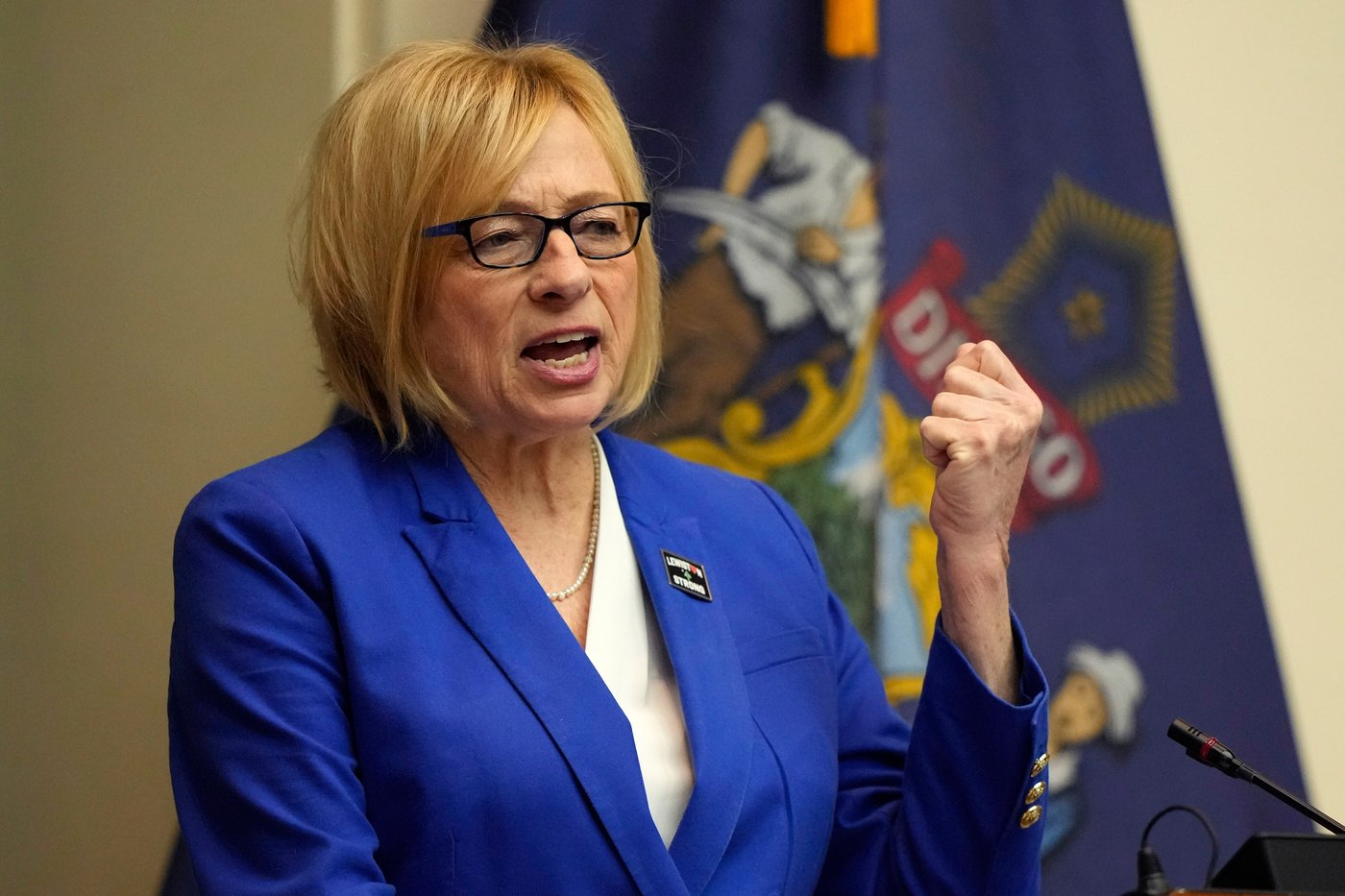Elevate your local knowledge
Sign up for the iNFOnews newsletter today!
Sign up for the iNFOnews newsletter today!
Selecting your primary region ensures you get the stories that matter to you first.

PORTLAND, Maine (AP) — Maine’s two-term Democratic Gov. Janet Mills will run for the U.S. Senate seat held by veteran Republican Sen. Susan Collins next year, two people familiar with Mills’ plans said on Friday.
The development sets up a potential showdown between the parties’ best-known figures in a state where Democrats see a chance to gain a seat in their uphill quest for the Senate majority.
Mills is tentatively expected to announce her candidacy on Tuesday, according to the people, who insisted on anonymity to discuss plans they were not authorized to share publicly.
Mills was the top choice of national Democrats who have long tried to unseat Collins, who has held the seat since 1997. She was urged to run by party leaders including New York Sen. Chuck Schumer, the Senate minority leader. And though she only met once with Schumer to discuss the race early this year, her decision is viewed as a recruiting win for Democrats, who also have well-known figures with statewide experience running for seats held by Republicans in North Carolina and Ohio.
Democrats see the Maine seat as especially important, considering it is the only one on the 2026 Senate election calendar where Republicans are defending an incumbent in a state carried last year by Democratic presidential nominee Kamala Harris.
Still, a Democratic majority in the 100-member Senate remains a difficult proposition.
The party would need to gain a net of four seats, while most of the states with Senate elections next year are places where Republican Donald Trump beat Harris. Maine is an exception, while in North Carolina, where Trump narrowly won, Democratic former Gov. Roy Cooper is viewed as a contender, and Democratic former Sen. Sherrod Brown is running in Ohio, where Trump won comfortably.
Mills gained national attention in February during a White House meeting of governors with Trump when she announced to him, “We’ll see you in court,” over her opposition to his call for denying states federal funding over transgender rights.
In April, Maine officials sued the Trump administration in an effort to stop the federal government from freezing federal funding to the state in light of its decision to defy a federal ban on allowing transgender students to participate in sports.
Mills stoked Democratic enthusiasm in April when she said of the lawsuit, “I’ve spent the better part of my career listening to loud men talk tough to disguise their weaknesses.”
Mills, 77, is a former state attorney general who won the governorship in 2018 and again in 2022. Maine governors are barred from seeking a third term and, while Mills early this year seemed to dismiss a Senate campaign, she had publicly rethought the notion and said she was “seriously considering” running.
She had set a November deadline for making a decision, though as of mid-September, she was interviewing prospective senior campaign staffers.
A campaign against Collins would pit her against a senator who has built a reputation as a moderate but who was a key supporter of Trump’s Cabinet and judicial nominations. A spokesperson for Collins declined to comment on the upcoming Mills announcement.
Collins, 72, has won all of her four reelection campaigns by double-digit percentages, except for in 2020.
That year, Collins defeated Democratic challenger Sara Gideon, the former speaker of the Maine House of Representatives, by more than 8 percentage points in a race Democrats felt confident could help them gain a seat in the Senate. Collins won in a year Democrats gained a net of three seats in the chamber. She won despite Trump losing Maine to Democrat Joe Biden by 9 percentage points.
Like Collins, Mills was born in rural Maine. She became Maine’s first female criminal prosecutor in the mid-1970s, and she would later become the state’s first elected female district attorney as well as its first female attorney general and governor. She served as attorney general twice, from 2009 to 2011 and from 2013 to 2019.
A few other challengers have declared candidacies for the Democratic nomination, including oyster farmer Graham Platner, who was launched an aggressive social media campaign. Platner has the backing of Vermont Sen. Bernie Sanders, who posted on social media on Thursday that Platner is “a great working class candidate for Senate in Maine who will defeat Susan Collins” and that it’s “disappointing that some Democratic leaders are urging Gov. Mills to run.” ___
This story has been correct to say Collins defeated Gideon by more than eight points, not less.
___
Beaumont reported from Des Moines, Iowa. Seung Min Kim in Washington contributed to this report.

This site is protected by reCAPTCHA and the Google Privacy Policy and Terms of Service apply.
Want to share your thoughts, add context, or connect with others in your community?
You must be logged in to post a comment.